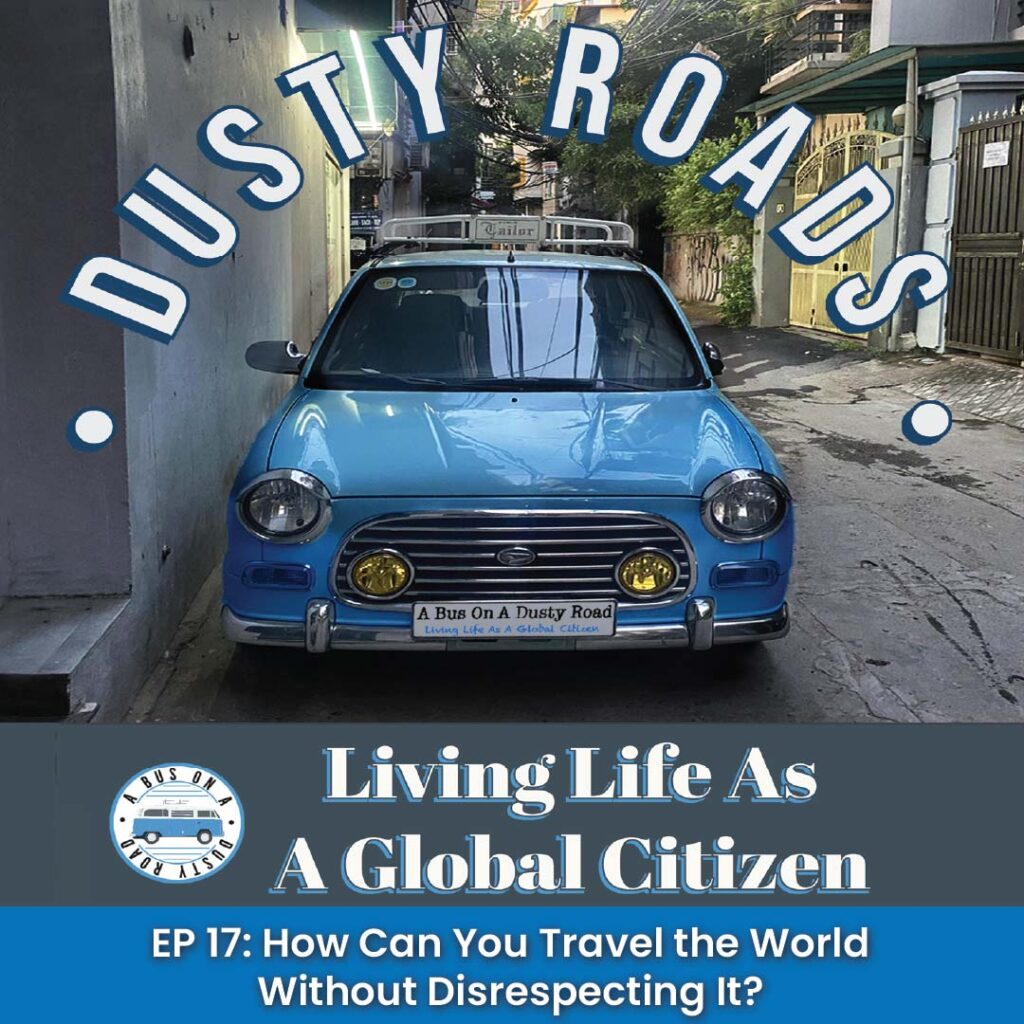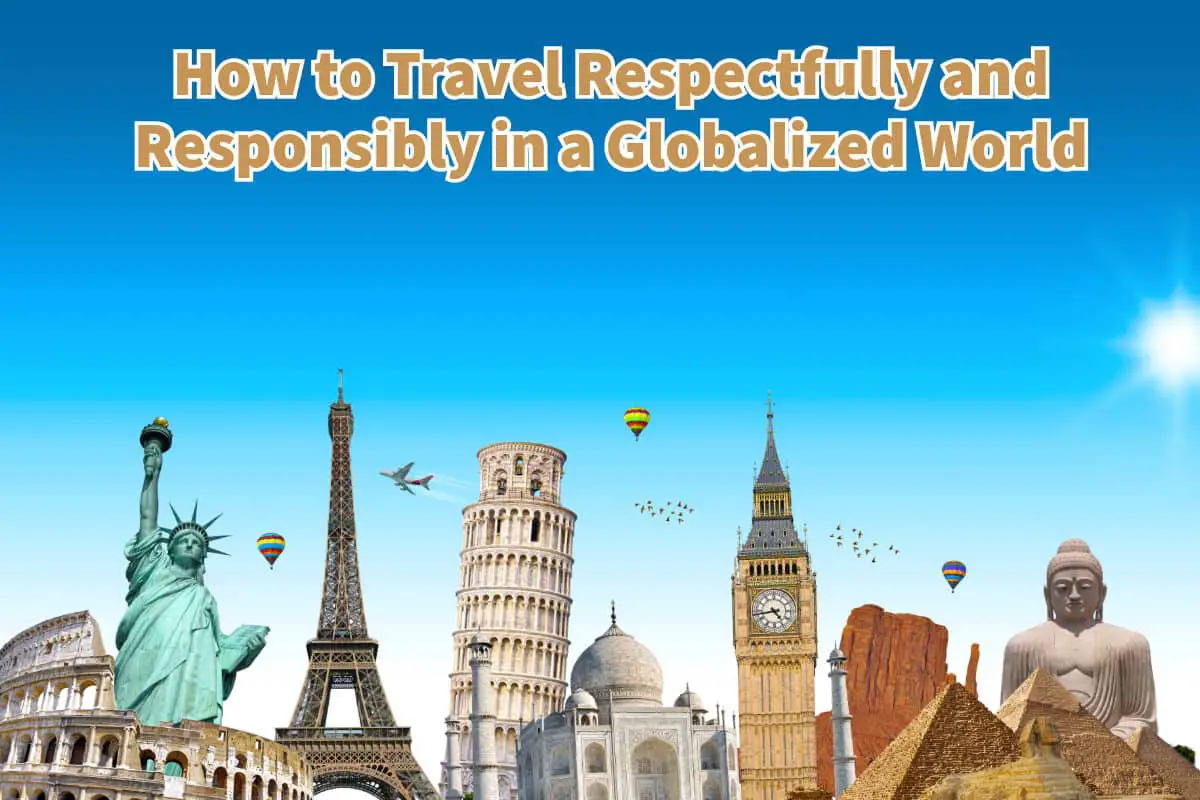In today’s interconnected world, travel is easier and more accessible than ever. But with great opportunity comes great responsibility.
Travel has never been more accessible. With a few taps, you can book flights, find accommodations, and chart a route across the globe. But with this unprecedented access comes a responsibility that many overlook. Traveling in a globalized world means more than just visiting places; it means engaging with them in a way that honors local people, protects the environment, and respects cultural traditions.
Table of Contents
- Global Travel, Local Respect: A Guide to Responsible Exploration
- 1. Respect the People, Always
- 2. Honor Local Customs and Traditions
- 3. Be a Conscious Environmental Steward
- 4. Support Local Economies Thoughtfully
- 5. Tread Lightly in Fragile Environments
- 6. Travel With Humility
- 7. Watch Your Digital Footprint
- 8. Understand the Impact of Your Presence
- 9. Engage With the Community, Not Just the Sites
- 10. Be Grateful, Not Entitled
- Final Thoughts: Traveling With Integrity
- Related Questions
Global Travel, Local Respect: A Guide to Responsible Exploration
Traveling the world opens our eyes to new perspectives and challenges us to act with greater awareness and cultural sensitivity. In an age where borders feel closer and cultures more connected, learning to be a respectful and responsible traveler is more critical than ever. This guide explores simple yet powerful ways to ensure your adventures uplift the places and people you encounter.
Here’s a guide to help you travel ethically and sustainably, with integrity and care.
1. Respect the People, Always

No matter where you go, remember this: you are a guest. Respecting locals should be non-negotiable.
- Be Kind: Kindness goes a long way. Smile, be polite, and try to listen more than you speak.
- Don’t Exoticize: Avoid treating people as spectacles or props for your travel photos. They are not there for your entertainment.
- Ask Before Taking Photos: Taking someone’s picture without permission is invasive, especially in rural or traditional communities.
- Learn Basic Phrases: A simple “hello,” “thank you,” or “excuse me” in the local language can build bridges.
2. Honor Local Customs and Traditions
Every place has its rhythm, rules, and values. Take time to learn and adapt.
- Dress Modestly Where Needed: In many parts of the world, especially religious sites, modest clothing is expected.
- Follow Religious Etiquette: Take off your shoes when entering temples, cover your head when required, and stay quiet in sacred spaces.
- Don’t Assume Western Norms Apply: Not every country views time, space, or behavior similarly. Adapting shows respect.

3. Be a Conscious Environmental Steward
Even if the place you visit has pollution or visible trash, that does not permit you to add to it. Your role is to do the opposite.
- Leave No Trace: Don’t litter. Always dispose of waste properly; if bins are unavailable, carry your trash until you find one.
- Bring a Reusable Water Bottle and Bag: Minimize single-use plastics, which are often hard to recycle in developing regions.
- Avoid Harmful Souvenirs: Avoid coral, ivory, exotic woods, or animal products. These purchases promote illegal and unsustainable practices.
- Stick to Trails and Marked Areas: Protect fragile ecosystems without wandering off paths in nature reserves or historic sites.
4. Support Local Economies Thoughtfully
Tourism can help communities thrive—or it can overrun them. Spend your money in a way that uplifts local people.
- Eat at Local Restaurants: Skip the global chains. Try locally owned spots where your money supports the community.
- Buy Locally Made Products: Choose authentic, handmade goods over mass-produced souvenirs.
- Hire Local Guides: They bring more profound insight into the region and keep tourism dollars in the community.
- Stay at Ethical Accommodations: Look for hotels or hostels that pay fair wages and invest in local development.
5. Tread Lightly in Fragile Environments

Many of the world’s most beautiful places are also the most vulnerable. Responsible travel helps preserve them.
- Don’t Touch Wildlife: Even if an animal looks friendly, touching can harm or disrupt its behavior.
- Avoid Animal Entertainment: Skip elephant rides, tiger selfies, or marine parks that exploit animals for profit.
- Practice Eco-Friendly Habits: Conserve water, use less energy, and avoid excessive towel changes or long showers.
6. Travel With Humility
Travel isn’t about you imposing your standards on the world. It’s about learning.
- Don’t Complain About Differences: Things will be different. That’s the point. Instead of judging, try to understand.
- Stay Curious and Open: Ask questions with genuine interest, not superiority.
- Don’t Try to Fix Things: You’re not there to correct or criticize a country’s systems. You’re there to learn.
7. Watch Your Digital Footprint
Think before you post in a world where travel is constantly broadcast on social media.
- Don’t Geotag Sensitive Places: Overtourism can damage sacred or ecologically sensitive spots, so keep them off the map.
- Share Stories, Not Stereotypes: Avoid clichés and caricatures that flatten a place into a trope.
- Highlight Positives, Acknowledge Complexity: Share the beauty you find, but don’t gloss over real issues.

8. Understand the Impact of Your Presence
Every footstep, dollar, and photo has an impact. Be mindful of what you leave behind.
- Limit Your Carbon Footprint: Take fewer flights when possible. Consider trains, buses, or carpooling.
- Visit Lesser-Known Spots: Help spread tourism revenue more evenly and avoid overcrowding.
- Travel Off-Season: Destinations overwhelmed during high season benefit from visitors during quieter times.
9. Engage With the Community, Not Just the Sites
Don’t just visit attractions. Get to know the people who live there.
- Attend Local Events: From markets to festivals, local gatherings offer a window into real life.
- Volunteer Responsibly: If you choose to volunteer, ensure it’s ethical and genuinely benefits the community.
- Stay Longer: Fast travel can be shallow. Slow travel helps you go deeper, appreciate more, and reduce environmental impact.
10. Be Grateful, Not Entitled

You’re not owed a perfect trip. Delays, miscommunication, and discomfort are part of the experience.
- Practice Patience: Things will go wrong. Respond with grace.
- Show Gratitude: Say thank you often. I appreciate the chance to be there.
- Leave a Positive Legacy: Whether it’s a kind word, a generous tip, or a thoughtful review, leave something good behind.
Final Thoughts: Traveling With Integrity
Travel is a privilege, not a right. In a globalized world, where the actions of one person can ripple across borders, traveling responsibly is more important than ever. Just because you can go somewhere doesn’t mean you should treat it carelessly. Even if a place appears polluted, disorganized, or under-resourced, that is never an excuse to add to the problem.
It’s the opposite. It’s a call to be better.
Treat every country, culture, and community you visit with the care you’d want visitors to show in your home. When you travel this way—with humility, respect, and responsibility—you don’t just take memories. You leave a place a little better than you found it.
And that’s what actual travel is all about.
Listen To Our Podcast About
How Can You Travel the World Without Disrespecting It?
Below or By clicking here.

At A Bus On A Dusty Road, we talk about history, travel, life, sailing, and ex-pat living. We are all about “Living Life As A Global Citizen.” We explore social, cultural, and economic issues and travel.
We would love to have you be part of our community. Sign up for our newsletter to keep up-to-date by clicking here. If you have any questions, you can contact me, Anita, by clicking here.
Listen to our Podcast called Dusty Roads. You can find it on all major podcast platforms. Try out listening to one of our podcasts by clicking here.
Subscribe to our A Bus On A Dusty Road YouTube Channel filled with great videos and information.
Related Questions
What Is the Origins Of The Name China?
In Chinese, the name for China is “Zhongguo,” or the middle kingdom. China is the term that most of the world knows or recognizes, not “Zhongguo” or the Middle Kingdom.
China’s name comes from the Sanskrit name “Cina.” The name refers to the Qin Dynasty, the first dynasty to rule China. The name “Cina” or “China” is not seen in Western writings until the early 16th Century.
You can discover more by reading What Is the Origins Of The Name China? by clicking here.
Where Is The Ching Ming (Qing Ming) Festival Celebrated?
The Ching Ming (Qing Ming) festival is celebrated in most parts of Asia, especially in any country with a sizeable Chinese community. Not all countries will celebrate this cultural festival as a public holiday. Still, in many parts of Asia, you will find people taking time off work as they need to go with their families to their family gravesites.
You can learn more by reading Where Is The Ching Ming (Qing Ming) Festival Celebrated? All About by clicking here.
Is Hong Kong A Separate Country Or A Part Of China?
Hong Kong and China have basic laws similar to what we would in the United States consider our constitution or our rights as individuals and citizens of a country. This fundamental law clearly states that Hong Kong is part of China’s country.
By clicking here, you can discover Is Hong Kong A Separate Country Or A Part Of China?

